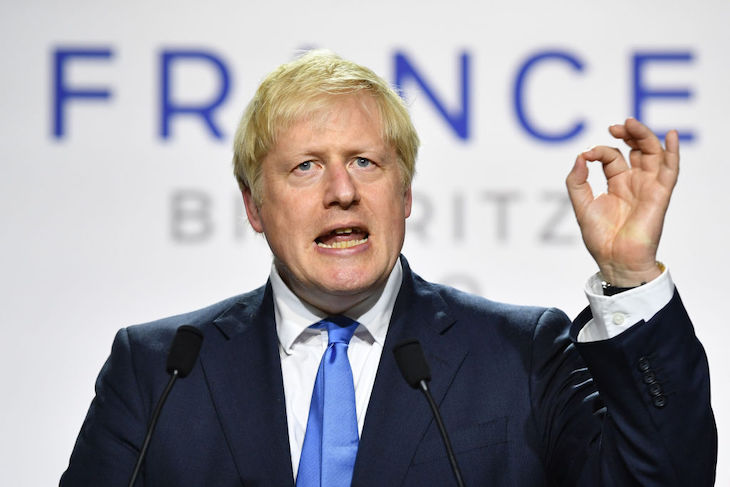Boris Johnson is being widely accused of subverting the British version of democracy with his plan to suspend or prorogue parliament for four weeks – unprecedented in modern times.
His apparent aim is to make it much harder for MPs to take control of the process of when and whether the UK leaves the EU.
But in behaving more like a Trumpian president than a British prime minister, he is simply following the logic of the massive constitutional changes that the 2010 and 2015 parliaments perhaps recklessly and thoughtlessly pushed through. These were, of course, the Fixed-Term Parliaments Act and the referendum on whether to leave the EU.
Johnson himself is clear he is only following through on what parliament set in train – his consistent justification for his actions is he is determined to put into force the votes of more than 17 million people who voted for Brexit in 2016.
He sets himself up as the voice of a country that expects MPs to ‘do the right thing and honour the pledge they made to the people [to Brexit].’
As the leader of the Vote Leave campaign that triumphed in the referendum, he is in a sense arguing he has a personal and direct mandate for Brexit. He is equating the 2016 referendum with a presidential election. And for the avoidance of doubt, it is not as outrageous as some argue that he is doing this.
What was always outrageous, a constitutional horror, was that David Cameron should have so recklessly grafted on to the UK’s parliamentary traditions the idea that on the biggest and most complicated decisions – whether we stay or leave the EU, the fairest system for electing MPs, whether Scotland should be an independent nation – direct democracy trumps centuries of parliamentary democracy.
If MPs now regret that Johnson is claiming a direct mandate from the people, and their role as our representatives has been degraded, they only have themselves to blame.
Johnson’s ability to act more like a president than simply the servant of parliament has also been reinforced by Cameron’s Fixed-Term Parliaments Act, which makes it so hard for MPs to throw him out. As Johnson’s close advisers tell me, even if he were to lose a vote of no confidence he would simply refuse to budge from Downing Street.
If MPs could somehow demonstrate to Her Majesty that an overwhelming majority of them had confidence in some other MP to lead a temporary government of national unity, maybe they could send the bailiffs in and evict him. But right now the prospect of MPs being able to coalesce around such a putative father or mother of the nation seems remote.
Under the Fixed-Term Parliaments Act, that means Johnson would simply use the vote of no confidence as an instruction for him to call a general election at a time of his own choosing – and his aides tell me he would set the polling date just a day or so after Brexit day on 31 October. This would mean that the very act of calling a general election would see the UK out of the EU, without a deal, by default.
MPs can rail, predictably and with some justification, that Johnson would be acting like some tinpot demagogue. But it was they who carelessly recalibrated the checks and balances of constitutional law and convention; they created him.
In other words, a Brexit that was sold to all of us – by Johnson and his allies at Vote Leave – as restoring the lustre of parliament looks instead to be part of a constitutional revolution that is permanently shifting the balance of power away from the Commons and Lords and towards 10 Downing Street.
This agonising and bloody battle by MPs to force Johnson to take a no-deal Brexit off the table is also a battle to salvage the authority of parliament: it is, paradoxically, a battle over how we govern ourselves, in or out of the EU.
And if you doubt me, I point you towards the most important statement made to me in recent weeks by one of Johnson’s closes allies:
‘My sense is that we will navigate the stormy waters better than the Remainers and somehow prevail in the mayhem, partly because we’re used to navigating mayhem and because we’re not incentivised in conventional ways.’
MPs are still playing by the old rules – almost as if they hadn’t noticed that it was those same MPs who changed all the rules. They are reaping precisely what they sowed, namely their own possible irrelevance.
Robert Peston is ITV’s Political Editor. This article originally appeared on his ITV News blog







Comments